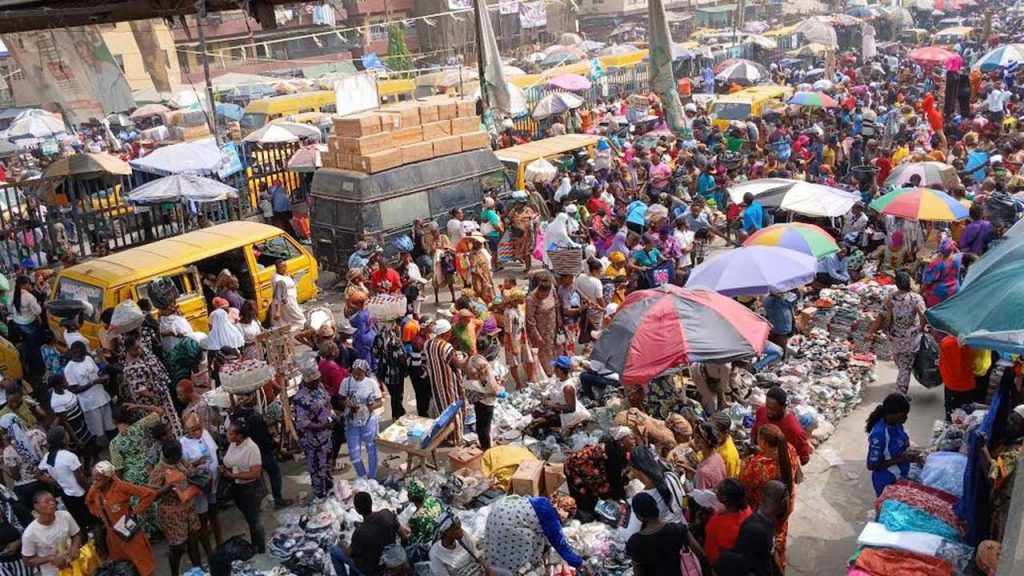
How Nigeria Is Failing Its Market Women With Broken Credit System
Markets, like nations, run on trust. They depend on the quiet assurance that money lent today will be repaid tomorrow, that goods bought today will still hold value next week. In Ibadan’s famous Gbagi Market, West Africa’s textile capital, that trust is crumbling. Beneath the vibrant swirl of Ankara and lace lies an invisible struggle, where generations of women traders are fighting not rivals but a ruthless credit system.
Once, trade in Gbagi was simple. Deaconess Kehinde Omowamiwa Oloko remembers when foreign suppliers trusted local traders: 30 per cent upfront, 70 per cent upon delivery. Then came the naira’s collapse. Orders placed at N145 per dollar arrived at N400. Losses piled up. Trust disappeared. What was once predictable trade became a gamble dictated by currency markets and government mismanagement.
Younger traders like Tolani Adigun, nicknamed Tolani Omooloko, face a harsher reality. They rely on microfinance loans that promise support but deliver suffocation. Interest rates exceed 20 per cent, paperwork drags on for weeks, and by the time funds arrive, opportunities have passed. In Gbagi, being whispered about as someone “running on borrowed money” can ruin a reputation faster than bankruptcy.
Nigeria’s financial system treats these women as expendable. Yet, they are the backbone of the economy. The Global Entrepreneurship Monitor says 41 per cent of Nigerian women are entrepreneurs—the highest in Africa—yet only 15 per cent can access formal credit. The International Finance Corporation estimates a $1.5 billion credit gap for women-owned businesses. Despite this, women consistently post the continent’s best repayment rates. The irony is glaring: the most dependable borrowers are the least supported.
Where banks see risk, these traders see responsibility. While government loans drown in bureaucracy, Gbagi’s ajo cooperatives circulate millions of naira without collateral. But their resilience has limits. Rising defaults are eroding the trust that sustains them. If the system continues to fail, Nigeria risks losing the economic heartbeat that keeps families and communities afloat.
Reform must go beyond token gestures. The Central Bank should enforce a 30 per cent lending quota for women—not as charity, but as sound economics. Loan repayment schedules must align with market seasons, not tech-startup models. Funds should flow directly to cooperatives that already command community trust.
Beyond policy, Gbagi’s women need digital empowerment—apps to track contributions, transparent cooperative records, and tools to monitor government schemes. In Bangladesh, Muhammad Yunus’s Grameen Bank proved that trust-based microcredit can lift millions from poverty. Nigeria can replicate that success by adapting similar community-centred models.
But government neglect persists. Budgets fund phantom empowerment projects while real cooperatives crumble for want of small liquidity support. Gbagi’s women don’t want pity or photo-ops. They want credit that empowers, not ensnares.
What’s at stake is not just fabric, but the very fabric of Nigeria’s economy. If Gbagi’s women fall, the nation’s resilience unravels with them. As one trader put it plainly: “Without loans, there is no business. Without business, there is no survival.”
It’s time Nigeria chose: support the women who sustain its markets, or watch the threads of its economy come undone.








DGClubGameBet looks pretty slick. Thinking of putting a few bets down. Hopefully, luck’s on my side! Will let you know how it goes. Fingers crossed! dgclubgamebet
https://t.me/dragon_money_mani/17
KYC verification on Fun88 through fun88fun88kyc.com was pretty straightforward. Good to know they’re taking security seriously. Now, time to play! Verify your account here: fun88fun88kyc